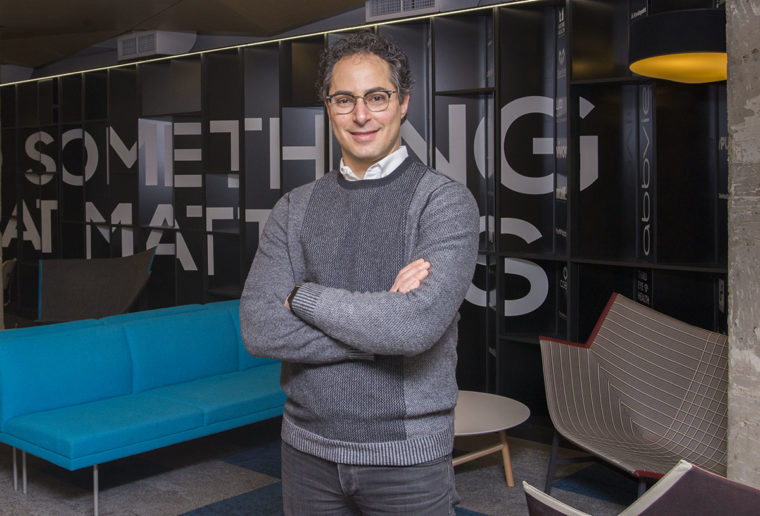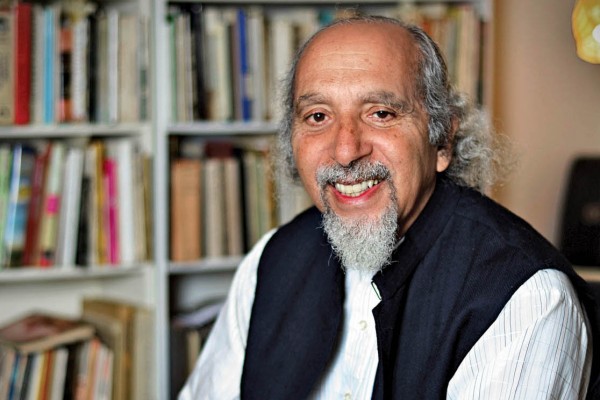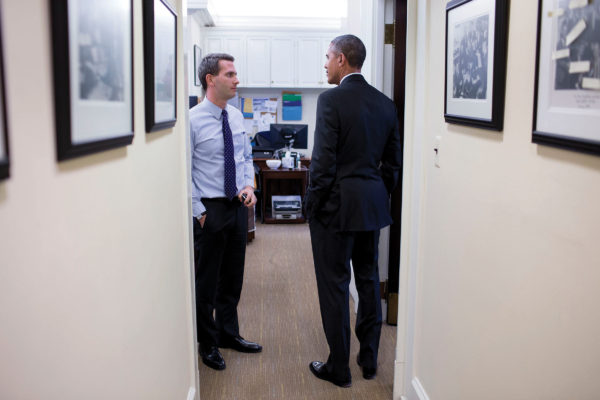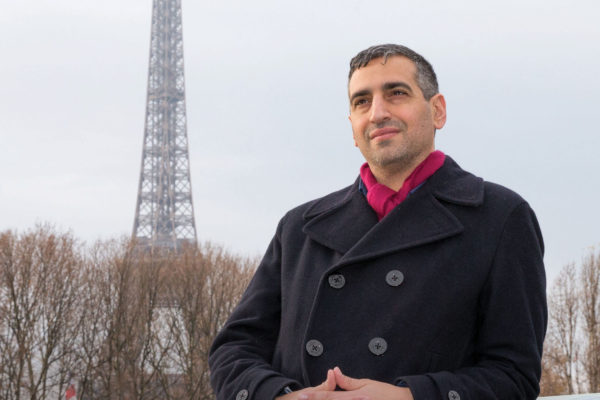Four years ago, when Steven Collens, AB ’93, thought about the organizational chart for his new company, only one name appeared on it: his own. Collens had plenty of prior experience in government and business — even at another startup — but never as CEO.
“I had never run anything before,” Collens says.
Collens had been tapped to build and lead a company called MATTER — a startup for other startups. The founding vision was to create a place to encourage health-care innovation in the Chicago area. MATTER member companies are developing technology to help deaf people enjoy music and using video-game technology to train medical professionals, among other innovations. But back in 2013, there was a lot of work ahead before the company would become home to the 200 health-care startups there today.
Collens, who grew up just north of Chicago in Evanston, Illinois, was eager to get out of town for college. Washington University’s Collegiate Gothic architecture and green lawns made an impression on him, and he enrolled. After graduating in 1993, Collens headed to Washington, D.C., where he worked on Capitol Hill. Several years later, he returned to Chicago and earned an MBA at Northwestern University.
Collens started his first business while working for the health-care company Abbott. He teamed up with a professional dancer and chiropractor to provide health-care coordination for dancers. “We did just about everything wrong that you can do when starting a business,” Collens says. After three years, in 2009, they called it quits.
But Collens would soon get a chance to put the lessons of that startup failure to work. In 2011, as senior vice president of Pritzker Group, a private investment firm, he was asked to establish a co-working space that could help create a more connected tech community in Chicago and incubate new businesses.
Collens had worked in several industries, but the tech world was uncharted territory. He threw himself into the community to learn as much as he could about the industry and the needs of entrepreneurs.
Collens and his co-founders named the co-working space 1871 as a nod to the rebuilding of Chicago after the Great Chicago Fire that destroyed much of the city that same year.
“It was a startup, so it was inherently a mess,” Collens recalls, laughing. He worked seven days a week for long hours but loved it. “It was one of the most fun things I’ve ever worked on,” he says.
In 2012, 1871 opened its doors, and hundreds of applicants vied for space in the new startup incubator from day one.
About a year later, Collens met entrepreneurs Andrew Cittadine and David Schonthal, who were convinced of Chicago’s potential as a hub for health-care innovation. Large pharmaceutical and health-insurance companies are headquartered in the city, which is also home to several teaching hospitals and national medical professional organizations. But much like the Chicago tech scene before 1871 opened, no forum existed where the city’s health-care resources and talent could come together. Collens, Cittadine and other founders created MATTER to solve that problem.
“Steve’s drive and vision from 1871 were critical to the success of MATTER,” Cittadine says.
The U.S. health-care system is sprawling and rife with inefficiency, but it’s difficult to spot opportunities without direct access to
hospital facilities or insurance companies.
“Unfortunately, it can be easy to build a product that has no market,” Collens says. So MATTER connects its larger institutional partners with member companies to help guide innovation. And MATTER took things a step further by building mock doctors’ offices and inpatient facilities so developers could better understand how their products would be used in real life.
Since it opened in 2015, MATTER member companies have employed 2,200 people and developed health-care products used by 76 million patients.
Collens says he doesn’t have any plans to leave MATTER to launch yet another business. But he doesn’t rule out the idea completely.
“I love new challenges,” he says. “It motivates everything I’m doing.”



